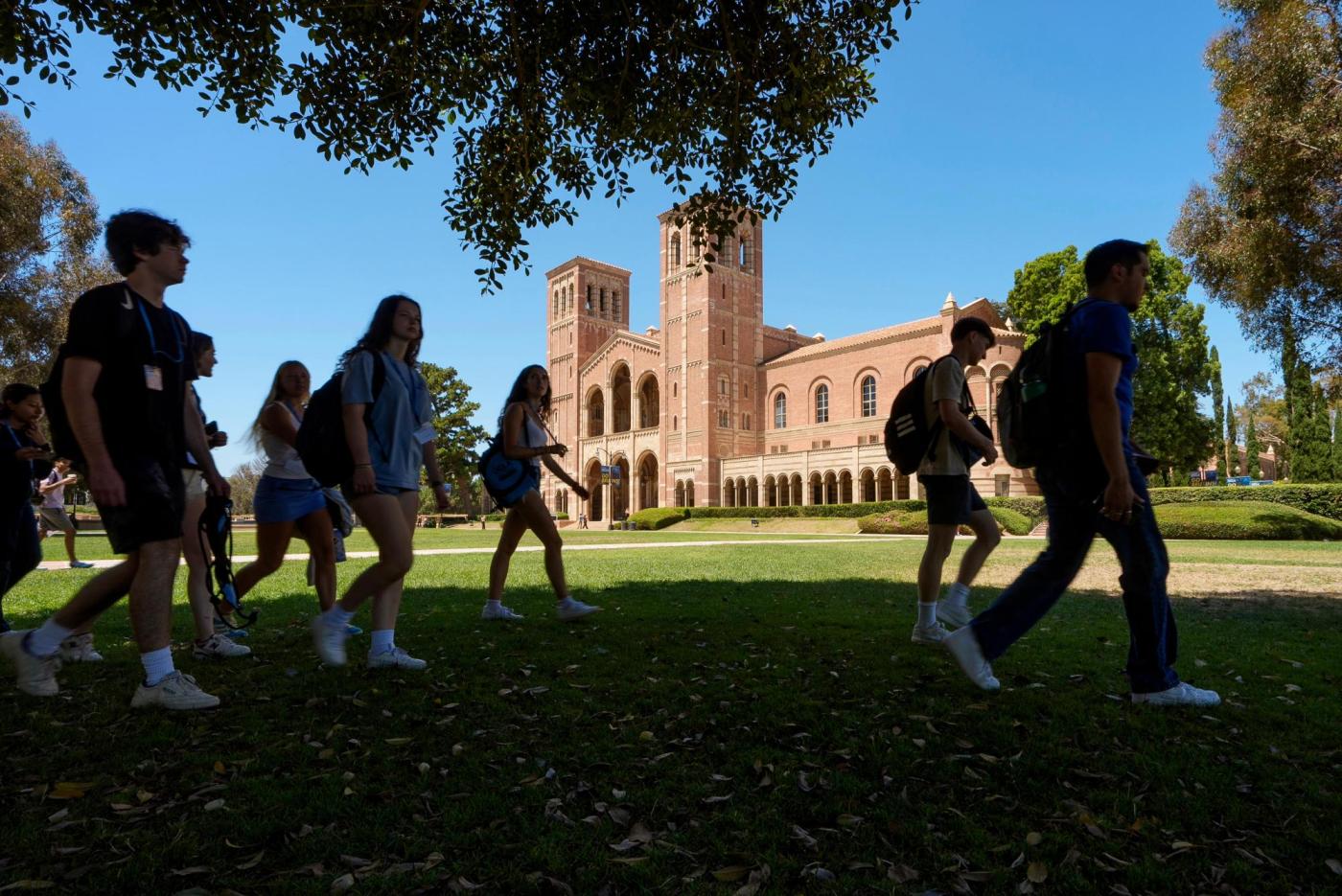URGENT UPDATE: House Republicans have just expanded their investigation into antisemitism to include the University of California at San Francisco (UCSF) and the University of California at Los Angeles (UCLA) medical schools. This significant decision comes amid alarming allegations that Jewish students and faculty face hostility and fear on these campuses.
The House Education and Workforce Committee notified both universities this week, demanding four years’ worth of documents related to antisemitism complaints, investigations, and educational materials. Committee chair Tim Walberg, a Republican from Michigan, expressed concerns in a letter to UCSF, stating that the university has “not demonstrated” an adequate response to these allegations.
The implications of this investigation are profound. With a backdrop of increasing tensions surrounding antisemitism in educational institutions, Governor Gavin Newsom recently condemned the Trump administration’s earlier actions, which included cutting over $500 million in research grants to UCLA over similar claims. Newsom described the administration’s demands as “extortion,” pledging to take legal action to protect the UC system.
The urgency of these investigations cannot be overstated. Since January 2023, more than 111 investigations have been launched into colleges nationwide, with 18 investigations specifically targeting California universities. The scrutiny reflects a broader national concern regarding the treatment of Jewish students in academic settings, with UC Berkeley also under fire from the Department of Justice for creating a hostile environment for Jewish individuals.
The House committee’s letter outlined specific allegations against UCSF, including claims that Jewish students and patients felt compelled to conceal their identities. Reports indicate that UCSF faculty have made antisemitic remarks and that the university’s cancer center was defaced with language referencing the Holocaust. In one disconcerting instance, a Jewish faculty member raised concerns about antisemitism only to be referred to a counselor who reportedly made antisemitic comments online.
The committee’s investigation hinges on Title VI of the Civil Rights Act of 1964, which prohibits discrimination based on race or national origin in federally funded programs. Under this law, even speech protected by the First Amendment could contribute to a hostile environment, raising critical questions about the balance between free expression and the protection of minority groups.
As the investigation unfolds, experts like Jon Fansmith from the American Council on Education warn that the current approach taken by the federal government represents an unprecedented “weaponization” of oversight authority. Critics argue that the demands placed on institutions are far beyond standard operating procedures and could have damaging consequences for academic freedom.
The situation escalates further as other Bay Area schools, including Stanford University, face lawsuits over antisemitism claims. Stanford is among the 60 universities currently undergoing civil rights investigations. One lawsuit alleges that Jewish Israeli researcher Shay Laps experienced severe discrimination, which Stanford claims is unsubstantiated.
With tensions running high, the next steps for UCSF and UCLA will be closely monitored. The universities have two weeks to comply with the committee’s request for documentation, and the outcomes could significantly influence future policies regarding antisemitism in educational institutions.
This ongoing story is not just about institutional accountability; it touches on the broader implications for Jewish communities across the country. As developments continue to unfold, stakeholders are urged to remain vigilant and informed about the critical issues at play. The impact of these investigations may shape the landscape of higher education and civil rights for years to come.
